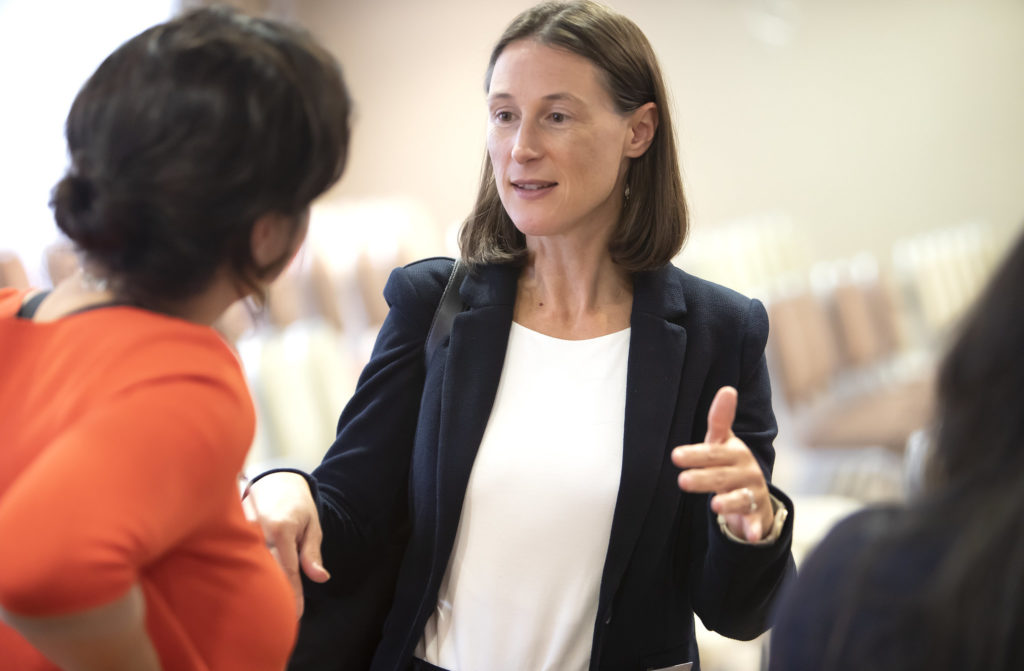The Eastern Arc Mentoring Scheme

Eastern Arc offers us the chance to go beyond the limits of our own university and work creatively with colleagues across the consortium. In 2023/24 programme we opened up the scheme to include professional services colleagues and technicians. The deadline for the scheme was 30 September 2023, but will open again at the end of the summer 2024.
What is mentoring?
Mentoring is a voluntary, but formal, arrangement whereby ‘an experienced individual, outside the reporting relationship, holds regular meetings and discussions and takes a personal interest in guiding and supporting the development of a less experienced person in progressing within and beyond their immediate role’ (Hale, 2000).
Mentoring can cover all aspects of your career. You can be either – or both – a mentor or a mentee. In standard mentoring it is usually a more senior colleague who mentors; in reverse mentoring the more junior colleague can offer specific insights and knowledge to senior mentees.
Mentoring should be viewed as a relationship rather than a management activity. It should be a safe non-judgmental relationship that facilitates a wide range of learning, experimentation, and development.
Benefits of mentoring
Mentoring across Eastern Arc and between different institutions will have a benefit to both mentors and mentees.
- Mentees: for mentees, it offers a source of support outside institutional structures, therefore clearly separated from management structures, providing a fresh perspective on many issues, and allaying potential concerns about confidentiality;
- Mentors: for mentors there is personal satisfaction; the opportunity to gain insight into a different institution, and to expand networks; evidence of taking on a senior role within the academic community.
Feedback from previous years’ cohorts
The EARC mentoring scheme has been running for three years, and over 130 colleagues have taken part. At the end of each year we get feedback from the participants.
For some, the experience was significant. ‘I am not exaggerating when I say this experience has been life changing,’ wrote one mentee. ‘It made me realise I do have a place in academia and that I am allowed to take up space, and find meaningful ways to work, I don’t just have to be grateful for whatever scraps my employers throw my way.’
For both mentor and mentee, it was an opportunity to ‘shake up set ways of thinking, whether that be ‘It doesn’t have to be done like this’ or ‘Thank God my institution doesn’t do things like that’: both are equally illuminating and helpful.’
How does the Eastern Arc mentoring scheme work?
The scheme is intended to be as non-bureaucratic and as non-hierarchical as possible.
Once the application deadline has passed (see below), we will match mentors and mentees. They will then be invited to a launch meeting at which they will meet others on the programme. We will outline the next steps, and there will be an opportunity to ask any questions.
Mentees will then have responsibility for setting up meetings after the initial introduction. Mentors have a responsibility to commit to a certain number of meetings. Although we are not prescriptive about the number of meetings, we would suggest that there should be a minimum of three.
Meetings can be face to face, or via phone, Zoom, etc. There is no fixed time period for a mentoring relationship; it is led by mentor and mentee.
Eastern Arc will act as a point of contact for any potential issues arising from the scheme. After the initial meeting, mentors and mentees can ask to be re-matched on a ‘no-fault’ basis if it does not seem that the particular match will work.
At the end of the year, we will collate any feedback on the scheme and adapt the process as appropriate.
How to apply for the scheme
The scheme is now closed. It will open again in July 2024. For reference, those wanting to apply will be asked to complete an update of this simple form (MS Forms).
Further information
For specific questions about the scheme, contact Phil Ward. If you would like to talk informally to the academic lead for the scheme, contact Tracey Loughran.
